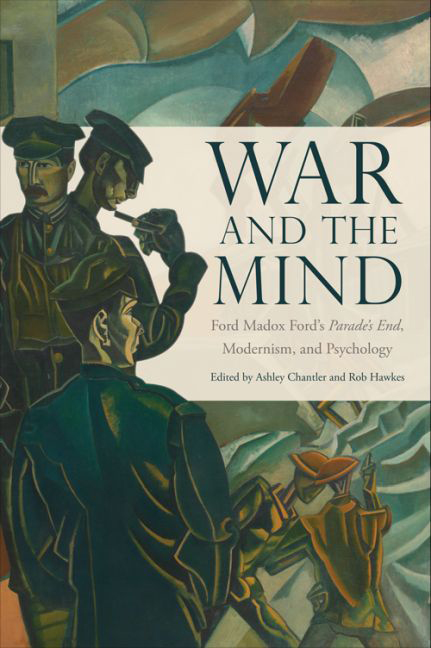Book contents
- Frontmatter
- Contents
- Acknowledgements
- Introduction
- 1 ‘Sex ferocity’ and ‘the sadic lusts of certain novelists’: Sexuality, Sadomasochism, and Suppression in Parade's End
- 2 Freud Madox Ford: Impressionism, Psychoanalytic Trauma Theory, and Ford's Wartime Writing
- 3 Empathy, Trauma, and the Space of War in Parade's End
- 4 Fellow Feeling in Ford's Last Post: Modernist Empathy and the Eighteenth-Century Man
- 5 The Self-Analysis of Christopher Tietjens
- 6 Composing the War and the Mind; Composing Parade's End
- 7 The Work of Sleep: Insomnia and Discipline in Ford and Sassoon
- 8 Representing Shell Shock: A Return to Ford and Rebecca West
- 9 ‘I hate soldiering’: Ford, May Sinclair, and War Heroism
- 10 Peace of Mind in Parade's End
- Notes on Contributors
- Bibliography
- Index
4 - Fellow Feeling in Ford's Last Post: Modernist Empathy and the Eighteenth-Century Man
Published online by Cambridge University Press: 15 September 2017
- Frontmatter
- Contents
- Acknowledgements
- Introduction
- 1 ‘Sex ferocity’ and ‘the sadic lusts of certain novelists’: Sexuality, Sadomasochism, and Suppression in Parade's End
- 2 Freud Madox Ford: Impressionism, Psychoanalytic Trauma Theory, and Ford's Wartime Writing
- 3 Empathy, Trauma, and the Space of War in Parade's End
- 4 Fellow Feeling in Ford's Last Post: Modernist Empathy and the Eighteenth-Century Man
- 5 The Self-Analysis of Christopher Tietjens
- 6 Composing the War and the Mind; Composing Parade's End
- 7 The Work of Sleep: Insomnia and Discipline in Ford and Sassoon
- 8 Representing Shell Shock: A Return to Ford and Rebecca West
- 9 ‘I hate soldiering’: Ford, May Sinclair, and War Heroism
- 10 Peace of Mind in Parade's End
- Notes on Contributors
- Bibliography
- Index
Summary
In this chapter, I examine the role that fellow feeling plays in Ford Madox Ford's final Tietjens novel, Last Post (1928). Like many other exemplars of high modernism, Ford's novel circulates between various characters’ minds, revealing multiple inner monologues and idiosyncratic interiors. Last Post thus encourages the reader to think and feel with those characters by turn. What sets the last volume of Parade's End apart from other such novels of its era is the way it cuts off our access to one particular character: its protagonist, Christopher Tietjens. My analysis of Ford's novel focuses on both Christopher, who is away for almost the entirety of the novel, and his brother Mark, who remains motionless and outwardly mute until the novel's final pages. Christopher's conspicuous absence and Mark's conspicuous presence, I argue, press us to consider the traumatic effects of war on the mind. I am particularly interested here in the interaction between body and mind, and in the ways bodies mediate the reader's experience of characters’ minds. For it is in the dying Mark, who seems to exist simultaneously at the extremes of both corporeality and mental activity, that we find the culmination of Parade's End's sustained treatment of fellow feeling.
Throughout the Parade's End novels, Christopher understands himself as a man with an eighteenth-century mind and temperament caught in the twentieth century, a remnant of a dead past. At the same time, he lives in an era that is trying to reinvent one of the fundamental moral concepts of eighteenth-century Britain: fellow feeling. Empathy, the ability to ‘feel with’ or ‘think with’ another person, has deep conceptual roots in eighteenth-century discourses – it is the twentieth-century cousin of the moral sympathy that David Hume and Adam Smith theorised in their influential philosophical works.
- Type
- Chapter
- Information
- War and the MindFord Madox Ford's Parade's End, Modernism, and Psychology, pp. 63 - 76Publisher: Edinburgh University PressPrint publication year: 2015

